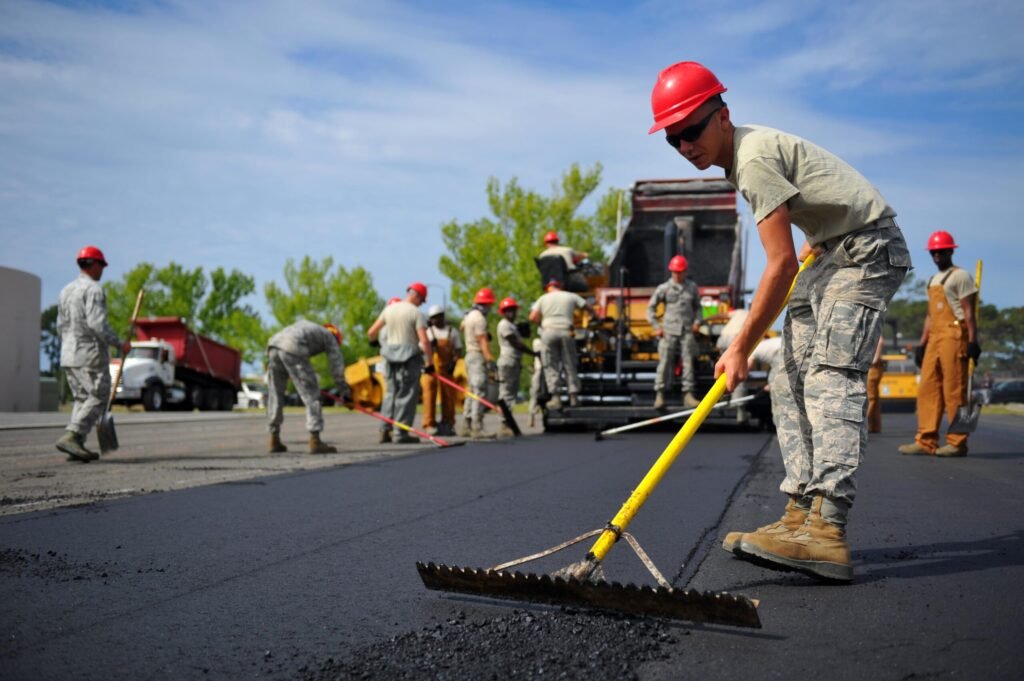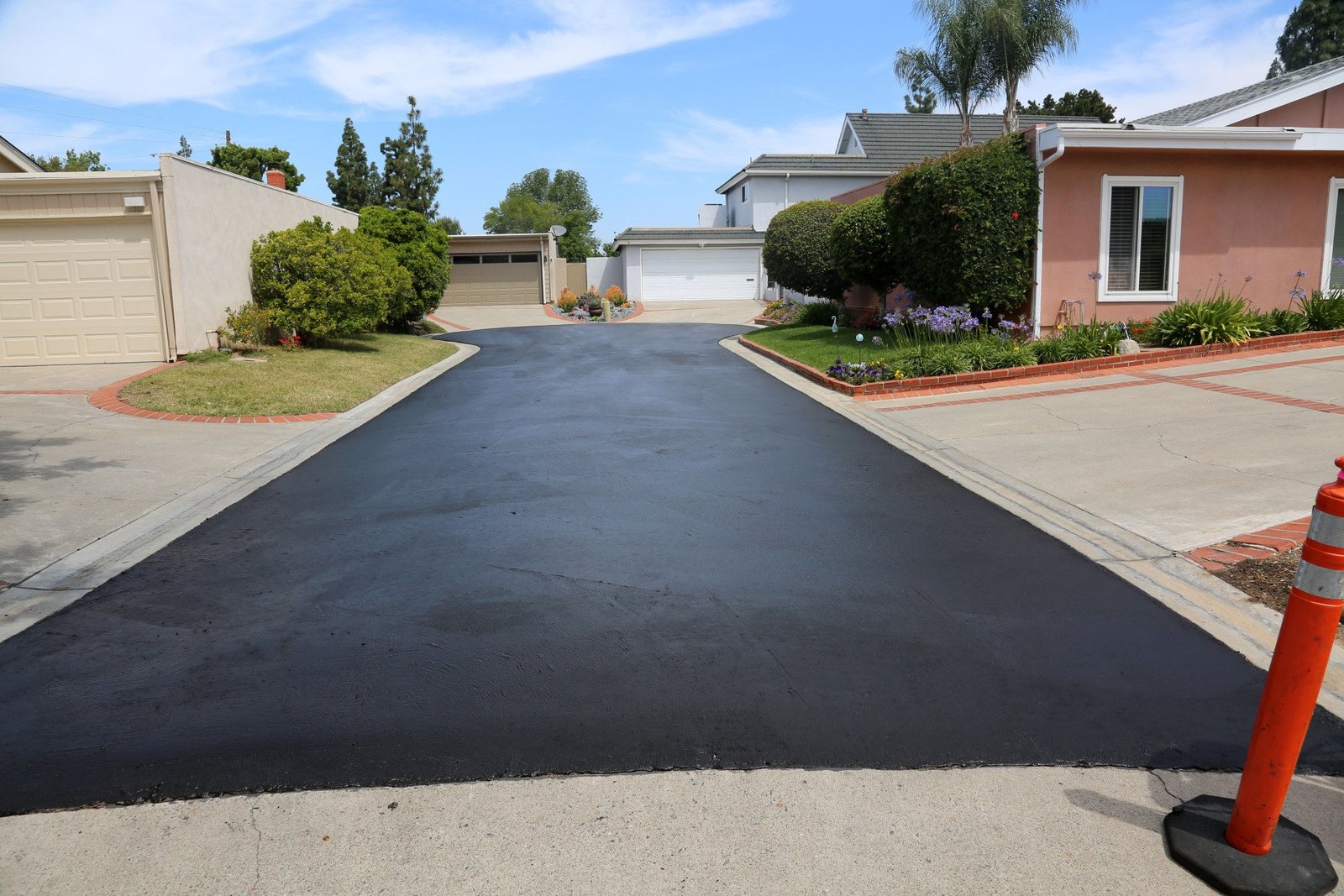Paving projects require meticulous planning, budgeting, and labour allocation, whether for driveways, parking lots, or roads. Before initiating Paving Exeter, it’s crucial to understand the estimated costs and workforce requirements to ensure a smooth execution. This blog will comprehensively summarise the budget and labour needed to start a paving project.
Determining the Budget for a Paving Project
The budget for a paving project depends on various factors, including the type of paving material, project size, labour costs, equipment rental, and additional expenses. Below is a detailed cost breakdown:
a. Cost of Materials
The choice of paving material significantly impacts the total cost. Below are the popular used materials:
- Asphalt – Costs between $3 to $7 per square foot
- Concrete – Costs between $4 to $10 per square foot
- Block Paving (Bricks, Stones, or Tiles) – Costs between $8 to $20 per square foot
- Gravel – Costs between $1 to $3 per square foot
b. Equipment and Machinery Costs
Using heavy machinery can increase efficiency but also add to the budget. Some essential equipment includes:
- Excavator – $200 to $500 per day rental
- Paver Machine – $500 to $1,500 per day rental
- Compactor – $50 to $200 per day rental
- Dump Truck (for material transport) – $100 to $300 per day rental
c. Labor Costs
Labour costs vary based on region and expertise. The average paving labour cost is:
- General labourers: $15 to $25 per hour
- Skilled workers (paver operators, concrete finishers): $30 to $50 per hour
- Project managers or site supervisors: $50 to $100 per hour
d. Miscellaneous Costs
Additional expenses that must be considered:
- Permit fees – $50 to $500, depending on location
- Site preparation – $1 to $5 per square foot
- Drainage system installation – $500 to $5,000
- Waste disposal and cleanup – $100 to $500
e. Total Estimated Cost
For an average paving project covering 1,000 square feet, the estimated cost breakdown is as follows:
- Asphalt paving – $5,000 to $10,000
- Concrete paving – $7,000 to $15,000
- Block paving – $10,000 to $25,000
- Gravel paving – $1,500 to $4,000
Labor Requirements for a Paving Project
The number of workers needed depends on the project’s scale and complexity. Below is a general labour estimate for different types of paving projects:
a. Small-Scale Residential Projects (Driveways, Walkways)
- Total Workers Needed: 3 to 5
- 1 Excavator Operator
- 2 General Laborers
- 1 Paver Operator
- 1 Supervisor (optional)
b. Medium-Scale Projects (Parking Lots, Small Roads)
- Total Workers Needed: 8 to 12
- 2 Excavator Operators
- 4 General Laborers
- 2 Paver Operators
- 2 Supervisors
c. Large-Scale Projects (Highways, Commercial Spaces)
- Total Workers Needed: 15 to 25
- 3-4 Excavator Operators
- 6-10 General Laborers
- 3-5 Paver Operators
- 3-6 Supervisors and Project Managers
Tips for Optimising Budget and Labor
To ensure cost efficiency and smooth project execution, consider the following tips:
Plan and Design Properly:
A detailed project blueprint reduces material wastage and ensures smooth execution.
Compare Material Costs:
Select cost-effective yet durable materials based on project needs.
Hire Experienced Workers:
Skilled labour ensures quality work, reducing the chances of rework.
Rent Equipment Smartly:
Instead of purchasing expensive machinery, renting on a need basis can save costs.
Negotiate with Suppliers:
Bulk purchasing of materials can lower costs.
Schedule Work Efficiently:
Avoid delays and idle labour costs by having a well-structured timeline.
Key applications of concrete in major construction projects:
Foundations and Structural Support
Concrete is widely used for foundations in high-rise buildings, bridges, and industrial structures. Its ability to withstand heavy loads ensures stability, making it an essential component in structural engineering.

Bridges and Overpasses
Bridges and overpasses rely on reinforced concrete for their decks, piers, and abutments. Concrete’s high compressive strength allows these structures to endure extreme weather conditions and heavy traffic.
Roads and Highways
Concrete roads and highways offer durability and lower maintenance costs than asphalt. They can withstand high traffic volumes and provide a smoother, longer-lasting surface.
Dams and Water Retention Structures
Concrete is preferred for dams, reservoirs, and flood control structures due to its ability to resist water pressure and erosion. It provides long-term stability and safety.
Skyscrapers and Commercial Buildings
Modern skyscrapers use reinforced concrete for their core structures, columns, and floors, which offers fire resistance and enhanced load-bearing capacity.
Tunnels and Underground Structures
Tunnels and subway systems rely on concrete for their strength and ability to resist ground pressure. Precast concrete segments are commonly used in tunnel construction.
Conclusion:
Starting a paving and Concrete Exeter project requires careful financial planning and proper labour allocation. By understanding costs, hiring skilled labour, and optimising resources, one can efficiently complete a paving project within budget and timeline.






Leave a Reply